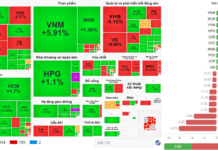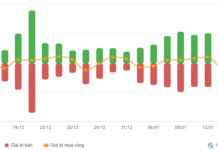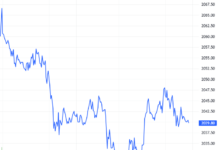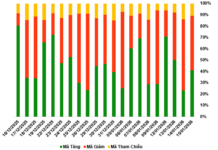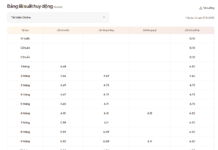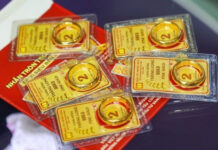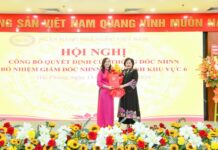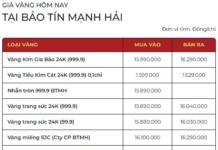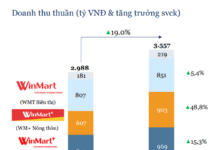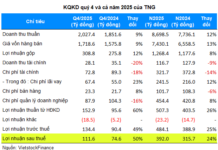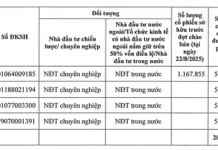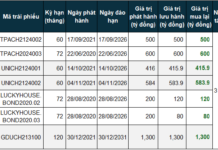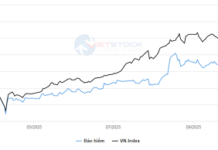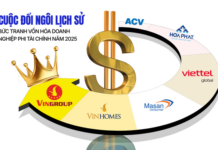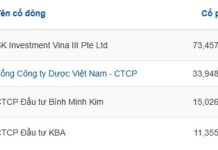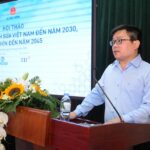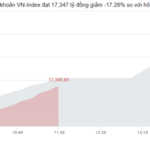At the scientific seminar “Developing Vietnam’s Dairy Industry towards 2030, with a vision to 2045” held in Ho Chi Minh City on August 12, diverse opinions were shared by management agencies, experts, and enterprises. Among them, the presentation by Mr. Ngo Minh Hai, Chairman of the Board of TH Group, the owner of the TH true MILK brand, attracted special attention. Not only did he clearly state the current situation and challenges, but he also proposed a series of highly feasible strategies closely linked to community health and the goal of self-sufficiency in domestic fresh milk raw materials.
This is also the consistent perspective of the TH Group in providing feedback on the “Strategy for the Development of Vietnam’s Dairy Industry for the period towards 2030, with a vision towards 2045” constructed under the Ministry of Industry and Trade.
The Fresh Milk Revolution and Fundamental Changes in the Industry
In 2008, TH Group entered the food industry due to an unacceptable truth: melamine-contaminated milk causing kidney damage in children in China. It was then that TH Group, under the leadership of its founder, Labor Hero Thai Huong, officially embarked on a new journey: the journey of fresh milk for community health.

Mr. Ngo Minh Hai, Chairman of TH Group, presents his thesis at the Dairy Industry Development Seminar, August 12, in Ho Chi Minh City
Starting from the heart and motherly love of the founder, with the criterion “Fresh milk is the only way,” following the strategy of utilizing “Vietnamese natural resources + Vietnamese intelligence and world-class technology,” TH Group has applied a closed-loop production process “from green pastures to clean milk,” pioneering the successful fresh milk revolution in Vietnam. Scientific and management knowledge were intertwined and utilized by TH to create high labor productivity, internationally standardized quality products, and reasonable cost prices.
Drawing on the experience of advanced countries worldwide, TH has affirmed its market-leading role, contributing to fundamental changes in the nature of the dairy industry, bringing the proportion of processed fresh milk to over 60% as of now, and aiming for a target of 93% as in advanced countries.
TH also pioneered the application of 4.0 technology and comprehensive digital transformation: chips for individual cow identification, a separate veterinary center, and a traceability system via QR code. TH’s herd of nearly 70,000 cows achieves an average productivity of 35 liters/day/cow, among the highest in the region. More importantly, the enterprise has integrated farmers into the value chain, helping them access technology, increase income, and contribute to social security in the localities where TH has projects.
In addition to production, TH persistently accompanies national nutrition programs, notably the National School Milk Program and activities to promote school nutrition in general. In 2013, TH pioneered the development of the product “TH true MILK Sterilized School Milk.” This was the first product recognized by the Ministry of Health for its effectiveness in improving the nutritional status and micronutrient levels of children, forming the practical basis for the School Milk Standards in the National School Milk Program, under Decision No. 1340/QD-TTg of the Prime Minister, contributing to reducing the situation of unknown source milk, which does not ensure food hygiene and safety, being brought into schools.
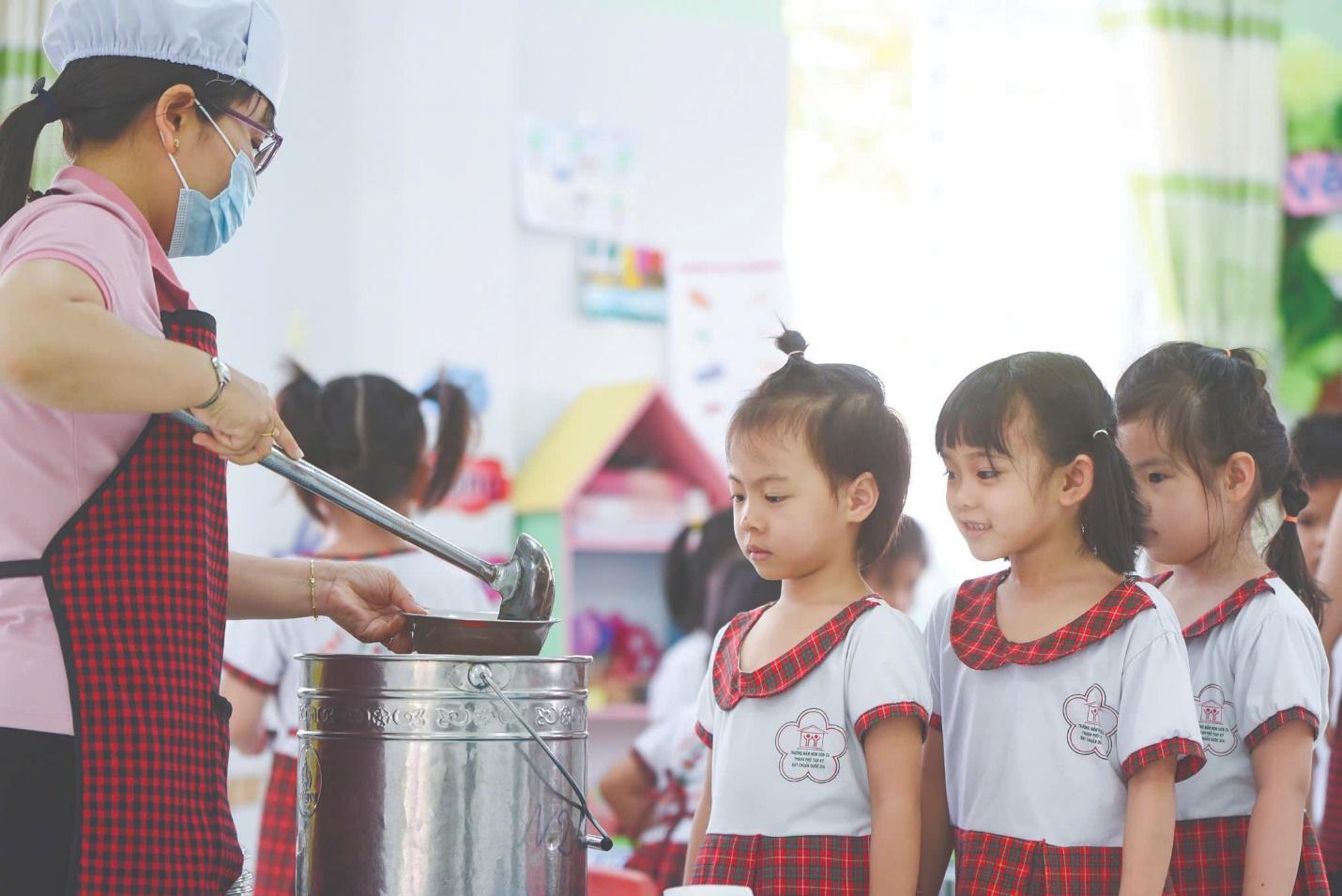
Image from the School Lunch Model Project, 2020-2021.
In 2020-2021, TH continued to accompany the Ministry of Education and Training, international nutrition experts, leading experts from the Ministry of Health (National Institute of Nutrition), and ministries to implement the “Model of School Lunch Ensuring Reasonable Nutrition Combined with Enhanced Physical Activity” in 10 provinces and cities in the five major ecological regions of the country. The model has yielded superior results in the physical condition, micronutrients, and habits of students; it is considered a comprehensive and revolutionary solution to enhancing the stature of Vietnamese people.
In his thesis, the representative of TH Group cited: In many developed countries worldwide (such as the US, Japan, Thailand, etc.), the School Milk Program is considered one of the effective ways to develop the physical condition and improve the health of children and contribute to promoting fresh milk consumption. “In China, there are specific regulations on prohibiting the use of reconstituted milk in the School Milk Program since 2000. Enterprises must use 100% fresh milk throughout the entire production process of milk for students,” said Mr. Ngo Minh Hai.
Strategic Proposals: Breakthrough Growth, Self-sufficiency in Domestic Fresh Milk Raw Materials
Mr. Ngo Minh Hai affirmed that increasing the dairy herd is a prerequisite for a breakthrough in the dairy industry development strategy, towards self-sufficiency in domestic fresh milk raw materials.
According to his explanation, Vietnam’s fresh milk industry is growing at a compound rate of about 10%/year. If this rate is increased to 18% in the next five years, by 2030, fresh milk can completely replace reconstituted milk. Further ahead, by 2035, average consumption can reach 54 liters/person/year, and self-sufficiency in fresh milk raw materials can be achieved at over 70%. To do this, with a concentrated high-tech livestock model, the total herd needs to reach 700,000 cows; if it still relies mainly on farm households, the number must be up to 1.2 million cows.
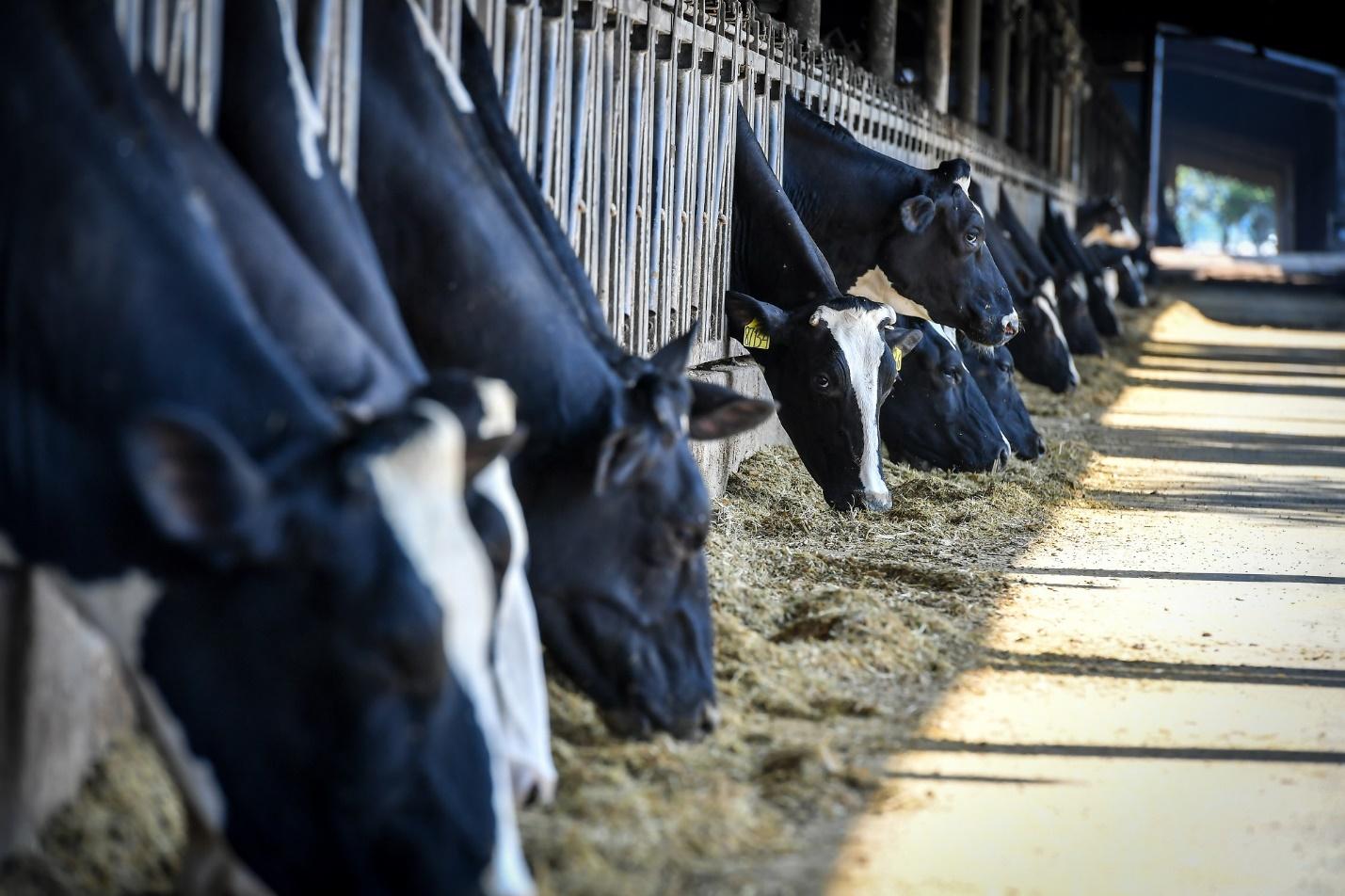
Increasing the dairy herd is necessary to achieve self-sufficiency in domestic fresh milk raw materials
Based on this reality, he proposed three main policy recommendations:
Tax and financial incentives: Apply 0% VAT to domestic fresh milk raw materials; provide investment subsidies for fixed assets and purebred livestock; support interest rates for high-tech livestock projects.
Land policy: Encourage land accumulation; convert inefficient agricultural and forestry farms to large-scale dairy farming; support farmers to link with enterprises.
The third recommendation is to promptly issue the National School Lunch Program, following the “Model of School Lunch Ensuring Reasonable Nutrition Combined with Enhanced Physical Activity for Children, Students, and Students” previously piloted by the Ministry of Education and Training. At the same time, learn from the experience of countries that have dramatically “escaped lowness,” such as Japan. They enacted the School Lunch Law in 1954, just one year after piloting the school lunch model. They also emphasize the important role of food enterprises—willing to accompany and share the burden with the government as a mission.
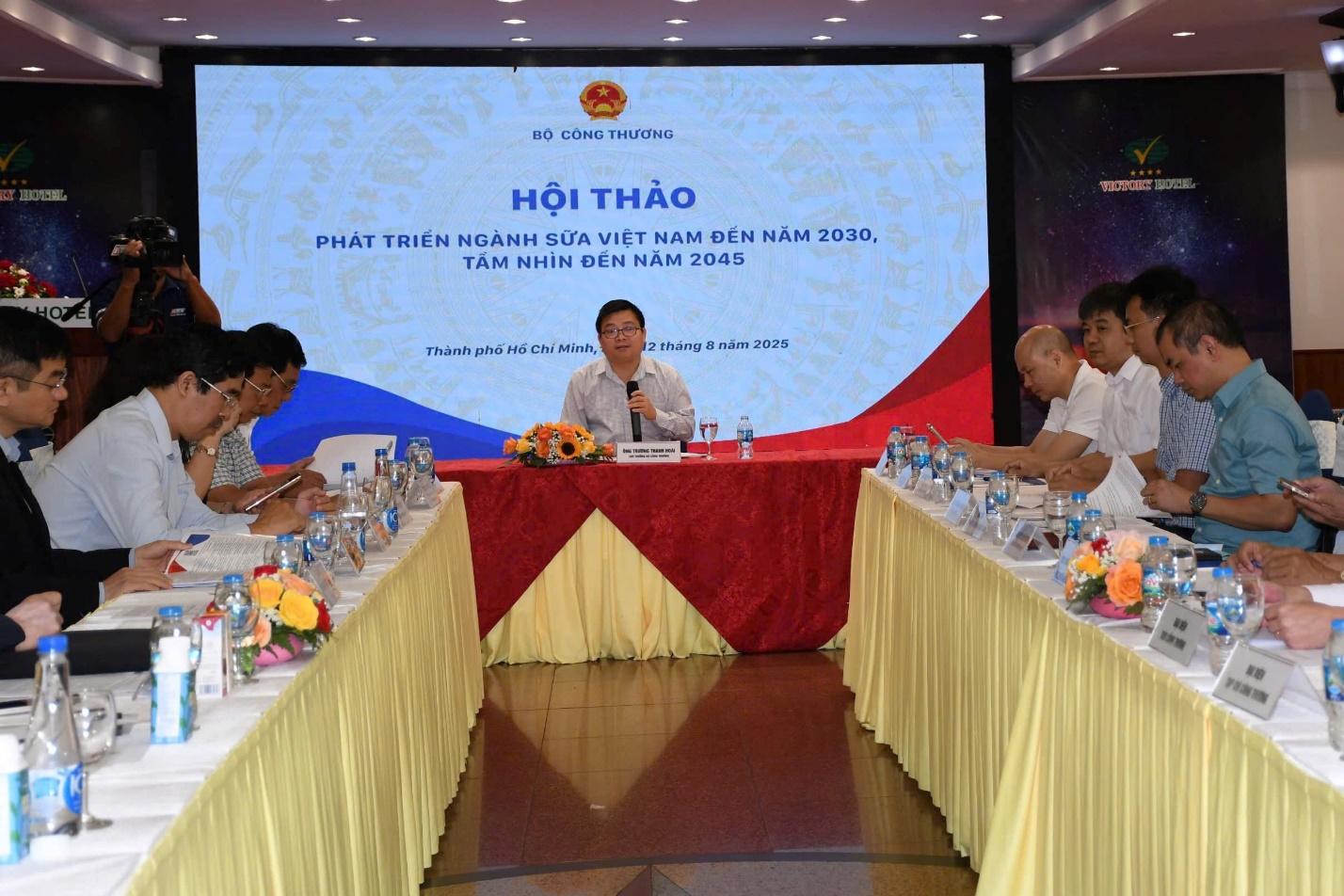
Mr. Truong Thanh Hoai, Deputy Minister of Industry and Trade, speaks at the seminar chaired by the Ministry of Industry and Trade
Mr. Hai emphasized that Vietnam currently has about 13.8 million preschool and primary school children. If each child drinks 5 glasses of milk a week at school and 2 glasses at home, the milk demand will be about 0.9 million tons/year – a significant driver for the industry’s development.
“We are ready to continue joining hands with the Party and the State to take care of the health of the golden generation,” he said, “For over 15 years, TH has been making milk with the heart of a mother. With the title of Labor Hero honored by the Party and the State, the founder continues to promote the heroic virtues of a heroic nation and calls on all members of the TH Group to spread this spirit, unite, and join forces to step into a new era – the era of national growth, as emphasized by General Secretary To Lam on the occasion of the 79th anniversary of National Day.”
Sharing the view with the representative of TH Group and many experts at the seminar on self-sufficiency in domestic fresh milk raw materials, Mr. Truong Thanh Hoai, Deputy Minister of Industry and Trade – the unit chairing the seminar and the draft Dairy Industry Strategy, emphasized: “Self-reliance and self-reliance are extremely important in the current context. For the dairy industry, the common view we need to be consistent with is: We need to reduce dependence on imported milk, especially to take advantage of the strengths of our country associated with agriculture and rural areas.”
The Vietnamese Dairy Industry’s Vision for 2030: Reducing Import Dependence, Boosting Domestic Fresh Milk Production
On August 5, at the scientific seminar “Developing Vietnam’s Dairy Industry by 2030, with a vision towards 2045,” experts offered insights for the draft dairy industry strategy. The key focus was on reducing reliance on imported milk and increasing self-sufficiency in fresh milk resources.
The Two Vital Suggestions from Labor Hero Thai Huong to the Prime Minister
With their proposal to establish a School Nutrition Act and their strategic plan for developing the forest economy, the TH Group has sparked interest and captured the attention of many at the conference with their insightful suggestions and ideas.


